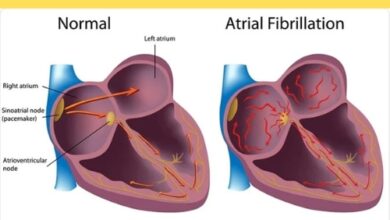Scientists may have finally found a cheap, natural cure for baldness
Balding has left researchers scratching their heads for decades. Could all that be about to change?

Scientists have discovered that a naturally occurring sugar in the human body may hold the secret to treating male pattern baldness, a finding that is giving the hair loss business new hope.
2-deoxy-D-ribose (2dDR) is a sugar that is essential to many biological processes in both humans and animals, yet it’s unlikely that you’ve heard of it. Scientists now believe that 2dDR could revolutionise the way that hair loss is treated.
Prof. Sheila MacNeil, a co-author of the study, said, “Male pattern baldness is such a common condition, affecting men all over the world, but at the moment there are only two FDA-licensed drugs to treat it.”
According to our research, increasing the blood flow to the hair follicles through the use of a naturally occurring deoxy ribose sugar may be the easiest way to treat hair loss and promote hair growth.
The scientists detected rapid hair development around locations with 2dDR during a study on wound healing, which led to the unintentional discovery. They then postulated that the hair follicles in the treated area might be directly benefiting from it.
The scientists put their notion to the test on mice by contrasting the results of 2dDR gel with minoxidil, one of the few presently available FDA-approved therapies for hair loss. The pharmacological ingredient in medications like Rogaine and Theroxidil is minoxidil.
The outcomes were striking: in terms of stimulating hair regeneration, the 2dDR therapy was 80–90% as successful as minoxidil.
This discovery is especially interesting because it may provide a more accessible and safer therapeutic option than what is now available. Even while minoxidil works well, not everyone should use it because it can have negative side effects including irritated scalps.
On the other hand, 2dDR is a substance that is naturally present in our bodies, which may result in less adverse effects and a wider range of applications.
Prof. Muhammad Yar, another co-author of the study, said, “We have demonstrated that this pro-angiogenic deoxy ribose sugar can be delivered from a variety of carrier gels or dressings. It is a naturally occurring, affordable, and stable substance.”
According to the scientists, the secret to this sugar compound’s efficacy is its capacity to promote blood vessel formation, which is essential for the health of hair follicles. 2dDR has the potential to stimulate new hair growth and rejuvenate dormant hair follicles by augmenting blood flow to the scalp.
“The research we have done is extremely early in its stage, but the results are promising and warrant further investigation,” MacNeil continued.
Beyond male pattern baldness, the medication’s potential benefits, according to the researchers, could include chemotherapy-induced hair loss and give cancer patients receiving treatment hope.
Experts warn that additional study is necessary before 2dDR-based therapies are made accessible to the general public.
According to Dr. Claire Higgins, an independent tissue regeneration researcher from Imperial College London, the study’s origins are rooted in the urban myth that hair growth is stimulated by increased blood flow.
“Minoxidil, the medication used to treat male pattern baldness, can increase blood flow, but it also has other effects on the skin and hair, and there isn’t enough evidence to say that blood flow and hair growth are related.”
Nevertheless, Higgins insisted that the data were encouraging and that 2dDR obviously increased blood flow and hair growth in the mice.
“But before I got too excited about the results, I’d want to see the effect on human hair growth, bulb size, and hair shaft thickness,” she said in closing.
This research provides a ray of hope for the millions of men who suffer from hair loss: an effective, natural, and reasonably priced solution.
This may provide an alternative method of treating the ailment, which has been shown to impact men’s confidence and self-image, according to MacNeil.




